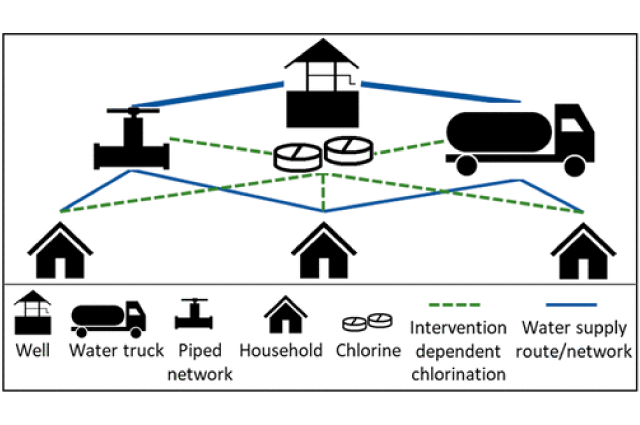Multilevel risk management

Associate Professor Daniele Lantagne and doctoral candidate Mustafa Sikder are part of a team studying the efficacy of multilevel risk management emergency response systems in Syria in the midst of the civil war.
The paper is titled "Effectiveness of Multilevel Risk Management Emergency Response Activities To Ensure Free Chlorine Residual in Household Drinking Water in Southern Syria." In this emergency context, the researchers surveyed water truckers and households, observed water treatment processes, and interviewed respondents on both the water provider and water consumer levels. That work was carried out in collaboration with UNICEF and local responding partners.
The researchers found that the current interventions were successful in ensuring free chlorine residual (FCR) in household drinking water. Centralized interventions such as piped water networks and coordinated central agreements with water vendors resulted in highest FCR results in households.
Department:
Civil and Environmental Engineering